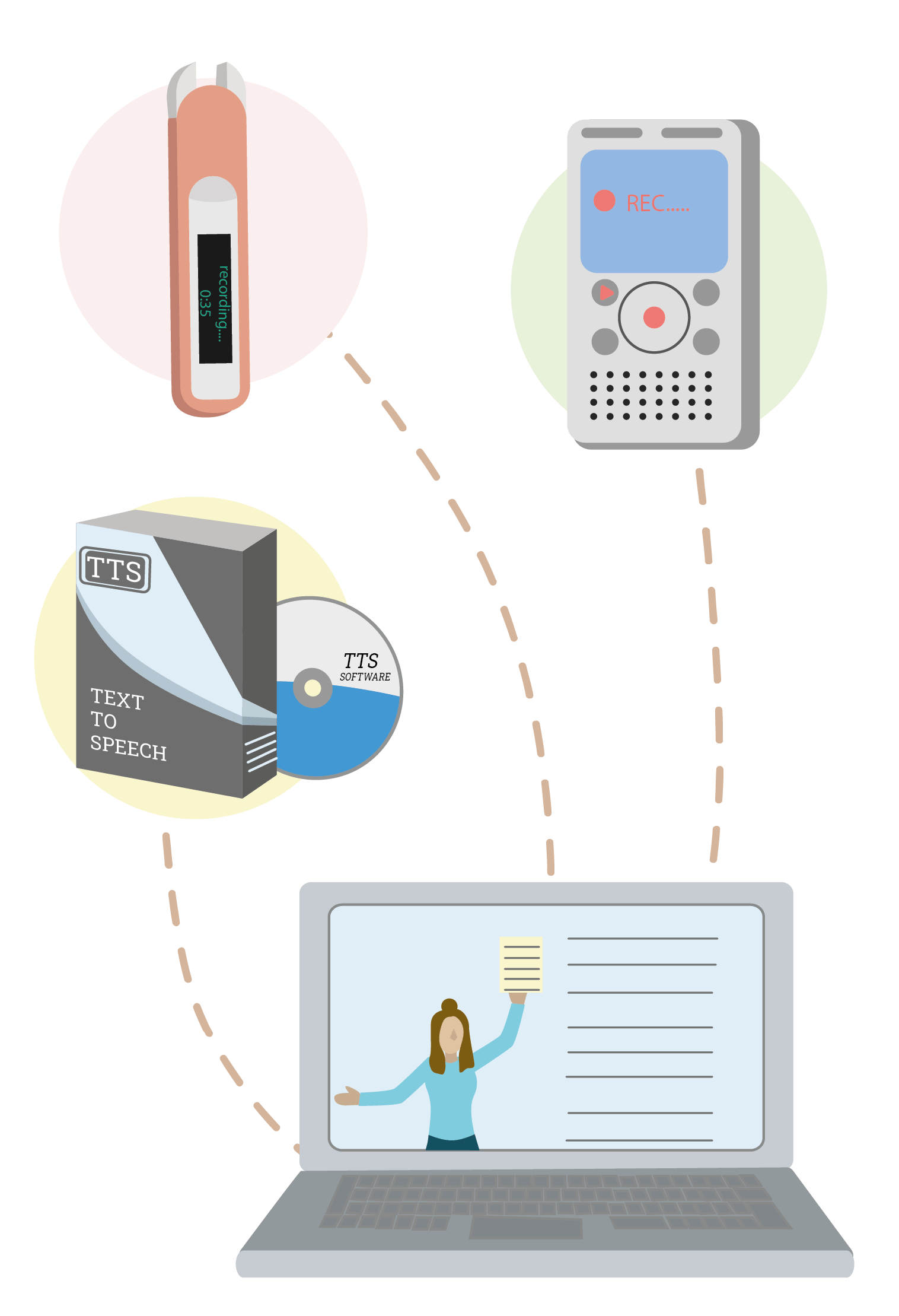
Assistive Technology Advice
Assistive technology (AT) can be extremely helpful for those who are neurodivergent. These products and systems help people with physical, developmental or learning disabilities to perform tasks that would otherwise be difficult or impossible.
What is assistive technology?
This technology can help individuals who have difficulties with things such as:
- Speaking
- Writing
- Typing
- Moving
- Hearing
- Seeing
- Learning
- Remembering
- Organising
Assistive technology, also referred to as AT, is any piece of equipment, software programme or product system that supports individuals with disabilities.
Assistive technology can be really beneficial for neurodiverse individuals. There are different types of technology suited for different types of neurodiverse conditions. This assistive technology is especially helpful when it comes to workplace environments, helping individuals to complete tasks that they would otherwise find difficult. From help with note-taking and reading to organisation and planning, assistive technology can support neurodiverse individuals in a wide range of areas.
Assistive technology can be really beneficial for neurodiverse individuals. There are different types of technology suited for different types of neurodiverse conditions. This assistive technology is especially helpful when it comes to workplace environments, helping individuals to complete tasks that they would otherwise find difficult. From help with note-taking and reading to organisation and planning, assistive technology can support neurodiverse individuals in a wide range of areas.
Types of assistive technology for neurodiverse individuals
Assistive technology comes in all shapes and sizes. There’s low-tech communication, high-tech communication, computer software and hardware and electronic devices.
The most common types used by neurodiverse individuals are:
- Speech-to-text software
- Screen and text readers
- Screen magnifiers
- Spell-checking software
- Word prediction software
- Mind-mapping tools
- Alternative input devices
- Mobility aids
- Noise-cancelling headphones
- Visual search engines
Assistive technology for work
Assistive technology can be particularly beneficial when it comes to the workplace. Neurodiverse people can often experience challenges within their job due to their disability, but specialised technology can act as a solution and help employees with a neurodiversity to reach their full potential.
For example, speech-to-text software can assist those with dyslexia who have difficulty writing, helping to provide an alternative option for taking notes, sending emails and more.
In addition, assistive technology can support individuals with ADHD who may find organisation difficult. Mind-mapping and time tracking software can help people to organise, layout and keep track of tasks and deadlines.
And for those with dyspraxia who find coordination skills challenging, alternative input devices can be a great advantage. These devices can include touch screens, speech recognition software, modified keyboards and pointing devices which help give individuals an easier way of using office equipment.
Whichever area of the office environment you have difficulty with, there’s a piece of assistive technology to help.
For example, speech-to-text software can assist those with dyslexia who have difficulty writing, helping to provide an alternative option for taking notes, sending emails and more.
In addition, assistive technology can support individuals with ADHD who may find organisation difficult. Mind-mapping and time tracking software can help people to organise, layout and keep track of tasks and deadlines.
And for those with dyspraxia who find coordination skills challenging, alternative input devices can be a great advantage. These devices can include touch screens, speech recognition software, modified keyboards and pointing devices which help give individuals an easier way of using office equipment.
Whichever area of the office environment you have difficulty with, there’s a piece of assistive technology to help.
Assistive technology training
Here at Exceptional Individuals, we offer assistive technology training.
This training is ideal for neurodiverse employees and will help you understand:
- How to choose the right assistive technology for your needs
- How to set-up assistive technology devices/software programmes
- How to use assistive technology effectively
Here at Exceptional Individuals, we offer assistive technology training. This training is ideal for neurodiverse employees and will help you understand:
How to choose the right assistive technology for your needs
How to set-up assistive technology devices/software programmes
How to use assistive technology effectively
If you’re unsure how assistive technology is used or whether it could benefit you, our training will give you all the information you need. We’ll help support you through the process of finding and feeling confident with specialised technology that could help support you with tasks you may currently find challenging.
We have also put together a number of assistive technology review videos, where we share our honest opinions on common assistive technology devices used by neurodiverse individuals.
If you’re unsure how assistive technology is used or whether it could benefit you, our training will give you all the information you need. We’ll help support you through the process of finding and feeling confident with specialised technology that could help support you with tasks you may currently find challenging.
We have also put together a number of assistive technology review videos, where we share our honest opinions on common assistive technology devices used by neurodiverse individuals.
